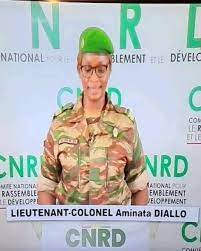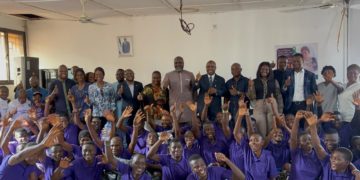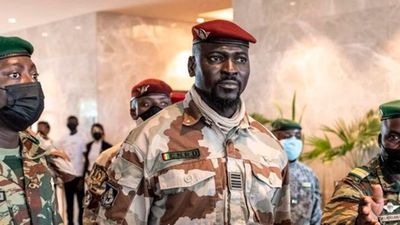The military junta in Guinea hasdistanced itself from the decision of the West African subregional grouping, ECOWAS, to sanction its neighbor Mali, saying it won’t observe the directives.
In a presidential decree issued on Monday, which was communicated via a statement, the junta announced that its decision was based on the fact that Guinea was not part of the decision-making process. It noted that its decision was also justified in that the country currently doesn’t belong to any ECOWAS institution, since its suspension on September 8.
“The CNRD wishes to inform national and international [partners] that the Republic of Guinea has in no way been associated with the decision of the fourth extraordinary summit of ECOWAS Heads of State dated January 9, 2022 on the sanctions taken against the Sister Republic of Mali,” reads a statement broadcast on national television.
“The Republic of Guinea reiterates its willingness to respect and apply the bilateral and multilateral conventions, agreements and treaties to which it is a party,” it added in the statement read by a CNRD spokeswoman Lt. Col. Aminata Diallo.
Guinea, like Mali, is under pressure to return to civilian rule after a group of special forces soldiers led by Col. Mamady Doumbouya seized power in a September 5 coup that brought to an end the 11-year rule of Alpha Conde.

The CNRD junta has since promised to transfer power to a democratically elected government.
ECOWAS says this must happen within six months.
But unlike Mali, Guinea is yet to provide any concrete road map to the transition to civilian rule, and this was the subjects of the communique issued by the West African leaders after last Sunday’s extraordinary summit in the Ghanaian capital, Accra, which imposed sanctions on Mali and ordered all ECOWAS member countries to implement it.
Member countries were ordered to shut their borders with Mali and cut off financial transactions, among many other punitive measures, with the landlocked country.
Mali is one of six countries that Guinea shares land border with. The others are Sierra Leone, Liberia, Senegal, Cote d’Ivoire and Guinea Bissau.
The Guinean junta said its air, land and sea borders will always remain open to “all fraternal countries” in accordance with its pan-Africanist vision.






















